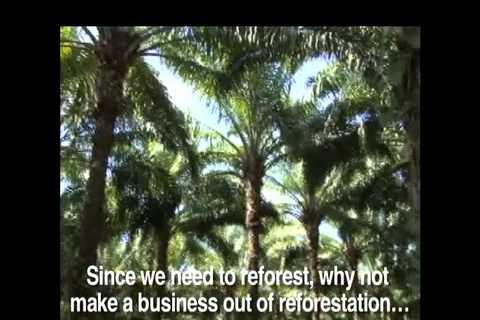The article: “Environmental services and the promotion of the commodification and financialization of nature: Forests, tree plantations and the green economy” published in last WRM bulletin Nº 175, raised a complaint from the NGO Forest Trends. The complaint concerned the information given in such article on the lack of public input for the approval of a law promoting trade in environmental services in Acre, Brazil.
Other information
March 14 is the International Day of Action For Rivers and Against Dams, when several voices raise against destructive water development projects including dams, reclaiming the health of watersheds, and demanding the equitable and sustainable management of rivers.
Several social organizations from different parts of the world have signed and published the briefing “Carbon markets will not deliver for Southern governments, forests and people
A broad coalition of organizations from around the world released the first global civil society declaration to outline principles that must be adopted to protect public health and the environment from the risks posed by synthetic biology and to address its economic, social and ethical challenges.
In view of the upcoming Rio+20 conference, taking place this June, WRM would like to offer some background information on issues that will undoubtedly be at the top of the agenda of this international event. Among those issues are so-calledenvironmental services and related phenomena, such as payments for and trade in environmental services.
On January 21, during International Green Week in Berlin, the environmental organization Rainforest Rescue presented the director-general of the United Nations Food and Agriculture Organization (FAO) with more than 27,000 signatures in support of an initiative headed up by 613 scientists and professionals in various fields related to the study of nature around the world, calling on FAO to amend its definition of “forest” (see http://wrm.org.uy/forests/letter_to_the_FAO.html).
This March 6 to 9 the Convention on Biological Diversity and the governments of Ecuador, India, Japan, Norway and Sweden will host a “Global Dialogue Seminar on Scaling Up Finance for Biodiversity” in the city of Quito, Ecuador. The purpose of the seminar is to explore “financial mechanisms and resources” for biodiversity.
In the southern Indian state of Tamil Nadu, the French Michelin company is planning to build a huge tire plant that would impact on the community forest, rice fields and lakes of the Dalit people (the so-called "untouchables"). Some 1500 families depend on the forest, especially during the dry season. Other 13 neighboring communities also depend on the forest and the water.
Repression and even imprisonment since February 2011 have been the response to hunger strikes and demonstrations against the construction of the plant.
The Indonesian police attacked a peaceful demonstration in SAPE Harbor on December 24, 2011, killing three persons and injuring at least twenty-nine others.
The protestors were members of Anti-Mining People's Front (FRAT) and were demanding against the Bima Gold Mine Project, owned by Australian PT. Arc Exploration Ltd.. The undertaking will dismantle the agricultural lands and disrupt water resources with very harmful consequences on the environment and the lives of local people who are mainly fisherpersons and farmers.
By Global Justice Ecology Project
On December 3, 2011, a front page article in the Dutch newspaper Volkskrant, denounced that the Dutch pension fund, ABP, one of the biggest in the world, is investing money through the Global Solidarity Forest Fund (GSFF), an initiative of Swedish and Norwegian Churches, in a monoculture tree plantation project of pine and eucalyptus in Mozambique that is affecting negatively peasant communities (see WRM publication of 2010: www.wrm.org.uy/paises/Mozambique/livro.pdf).
Governor Jacques Wagner and Environment Secretary Eugênio Spengler are preparing to give the people of the extreme south, south and southwest regions of the state of Bahia a SPECIAL CHRISTMAS PRESENT on December 21. The news has been leaked that regardless of the shortcomings of the corresponding EIA/RIMA (Environmental Impact Study/Environmental Impact Report), authorization will be granted for the expansion planned by Veracel Celulose. Although the EIA/RIMA contains numerous errors, this will pose no impediment.


